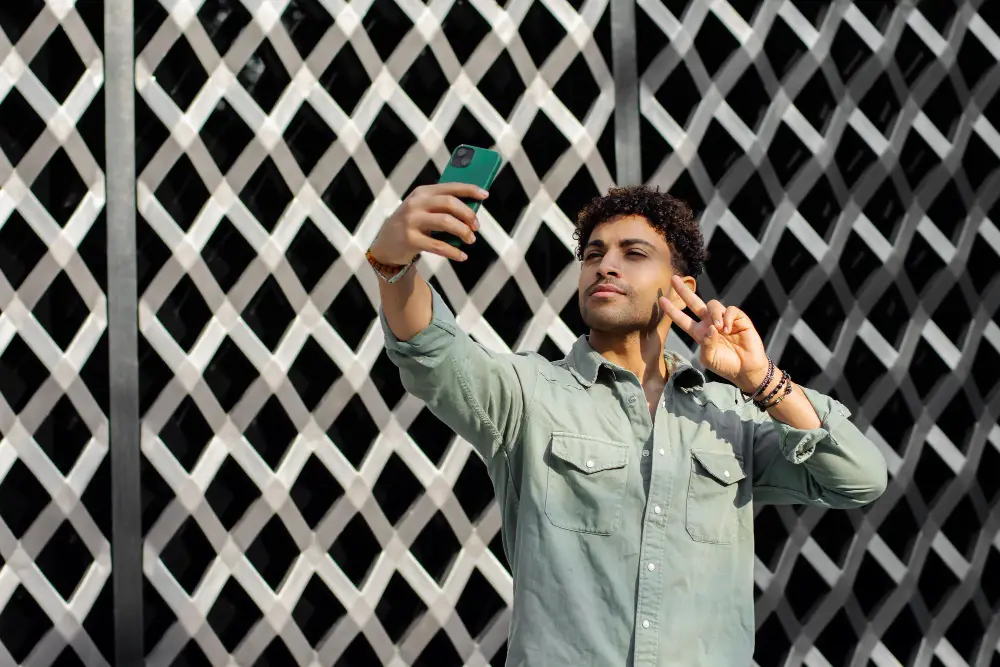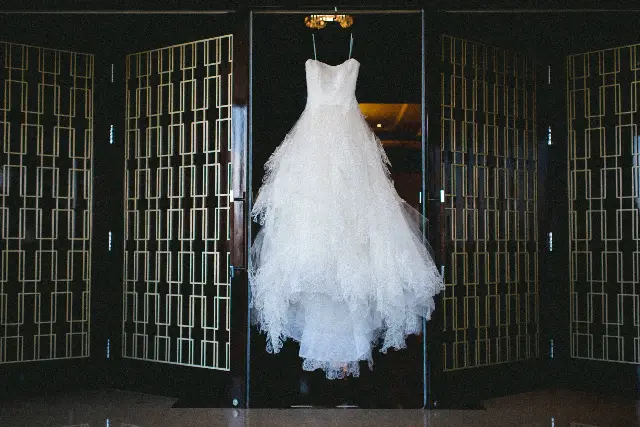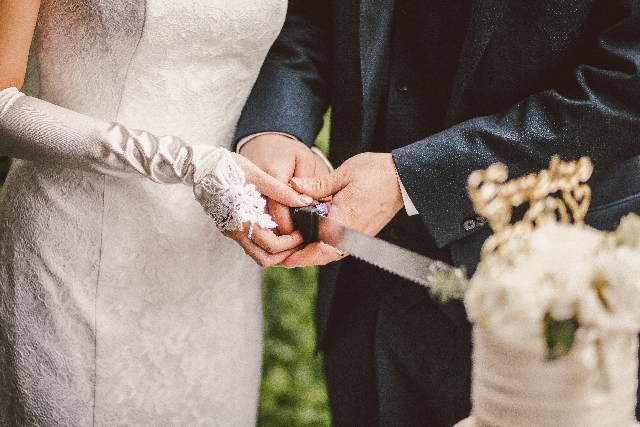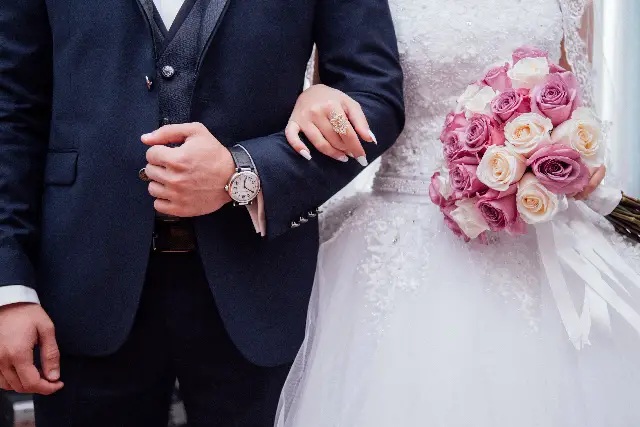Last Updated on January 8, 2024 by Chase Reiner
Egypt’s historical clothing has evolved due to cultural influences. Ancient Egyptians wore distinct attire, but over time, foreign influences, modernization, and changing lifestyles led to the adoption of more Western-style clothing. Traditional clothing is now often reserved for special occasions and cultural events.
Jump To A Section
Key Takeaways
- Egyptians don’t have traditional clothing because most people in Egypt come from diverse cultures, so there is no one clothing attire they can identify with.
- Egyptians had traditional clothing during ancient times before being colonized by the British.
- The influence of Western culture and modernization plays a major role in why Egyptians don’t have traditional clothing.
- After regaining their independence from the British, Egyptians saw traditional clothing as a backward symbol.
- Young Egyptians who have been exposed to fashion trends don’t embrace traditional clothing, especially during the hot summer of Egypt.
Why Don’t Egyptians Have Traditional Clothing?
The world is indeed a diverse place, with people expressing different cultures, traditions, and forms of dress. Across the globe, many nations are recognized for their unique traditional clothing. However, a notable exception is Egypt. Despite being one of the most historical civilizations known to humankind, it has no widely known traditional dress. Here are some reasons that explain why Egyptians don’t have traditional clothing.
- Influence of Foreign Cultures: Egypt has throughout history been invaded or controlled by foreign nations, including the Persians, Ottomans, Greeks, Romans, Arabs, and French. These foreign influences significantly affected the lifestyle and cultural traditions of the Egyptians, including their dress code.
- Modern Western Influence: The modern era has seen the spread of Western culture worldwide and Egypt has not been an exception. The adoption of Western-style clothing became widespread among Egyptians, especially in urban areas.
- Egypt’s Hot Climate: The unbearable heat of Africa’s largest desert country also contributes to the lack of distinct traditional clothing. Light, breathable Western-style clothing is more practical in Egypt’s hot climate.
- Religion: Egypt is a predominantly Muslim country that largely adheres to Islamic dress codes. A substantial part of the population wears styles like Hijabs and Jilbabs that are common among other Muslim nations.
- Evolution of Egyptian Clothing: Historical evidence shows that ancient Egyptians had significant traditional attire made from flax and featured draped designs due to the hot Egyptian climate. However, with time, this traditional mode of clothing evolved and was replaced by more modern styles.
In conclusion, while it may be perceived that Egyptians lack traditional clothing, it should be noted that what is considered traditional changes and evolves over time reflecting societal changes. Furthermore, national dress is often perceived through a Western lens which might not fully capture the unique cultural practices within a country.
What Is a Traditional Clothing?
Traditional clothing is a type of clothing that is typically associated with a particular culture or region. For example, traditional Japanese clothing includes kimonos and yukatas, while conventional African clothing includes dashikis and kaftans.
Traditional Egyptian clothing, on the other hand, is not as well-known. However, it still existed during ancient times. Ancient Egyptians wore clothes made from linen and were very colorful in their appearance. The garments were often patterned with dots representing stars in the sky; some are even said to have had gold threads woven into them!
Egyptian dress was different for men and women; Men wore skirts that extended down to their ankles, while women wore pleated skirts up to their knees which were fastened around their waist by a girdle of linen strips or metal rings.
Men also sometimes wore loincloths and kilts, depending on the occasion. Women’s tunics were split at the front to make way for her breasts so that she could breastfeed her children easily. Skirts consisted of multiple lengths of cloth sewn together, so they flowed out behind like rays of light or feathers.
There was also jewelry: earrings made from precious stones such as turquoise, lapis lazuli, emeralds, carnelian, and amethyst; necklaces made from beads including faience beads and glass beads imported from Syria; bracelets made with electrum wire or leather cords wound around a core (sometimes ivory), and anklets called khafaga fashioned out of silver wire wrapped in gold thread.
When Did Egyptian Clothing Change from Traditional to Contemporary?
While the answer to this question is tricky, it boils down to a few key factors. First, Egypt was colonized by the British in 1882. This means that, for over 50 years, Egyptians were subject to British rule and influence. Second, Egypt became a republic in 1953, which led to a period of intense nationalism.
Traditional clothing was considered a backwardness symbol during this time and was discouraged. Finally, Egypt has always been a very cosmopolitan country, with people from all over the world coming to live and work there. This has led to a more diverse range of styles and influences in Egyptian fashion. In addition, many Egyptian women wear Western clothes because they feel it’s easier to get a job if they are not wearing hijab or other traditional attire.
Contemporary Egyptian Fashion
The average Egyptian today is more likely to be found wearing jeans and a t-shirt than traditional clothing. So why is this? Modernization and westernization could be part of the reasons. As Egypt has become more industrialized, its citizens have adopted more Western dress styles.
This is especially applicable to younger generations who are more exposed to global trends. Additionally, traditional clothing can be seen as impractical and uncomfortable in the heat of the Egyptian summer. For these reasons, many Egyptians have abandoned traditional dress in favor of modern, westernized styles.

Still, some keep up their cultural traditions. These people might wear a galabeya or abaya over their clothes or simply find ways to integrate traditional style into everyday life (for example, by decorating their homes).
They also might not wear any head covering because they want to show pride in their heritage.
Understanding the Need for Diversity in Dress Styles
Traditional clothing is often seen as a symbol of cultural identity. In a country like Egypt, where the population is incredibly diverse, there is no one standard style of dress. Instead, Egyptians have a wide variety of dress styles that reflect their cultures and traditions.

This diversity is one of the things that makes Egypt such a beautiful and vibrant country. The different colors, shapes, fabrics, and silhouettes tell the story of Egypt’s rich history and culture. It also allows everyone to wear what they feel comfortable in without feeling like they’re not themselves.
What Modern Day Egyptian People Wear (Egyptian Clothing)
1. Traditional Galabeya
The traditional Egyptian clothing, Galabeya, is commonly worn by both men and women in modern day Egypt, particularly in rural areas. It is a long, loose-fitting robe that is comfortable in the country’s hot climate. While the men’s galabeya tends to be plainer or in darker shades, the women’s galabeya is often colorful with intricate embroidery.
2. Western Clothing
In urban areas like Cairo and Alexandria, Western outfits are commonly seen among Egyptians. Young people, in particular, wear jeans and t-shirts. Suits, business dresses and high-heeled shoes are often worn by professionals and business people.
3. Hijab
Many, but not all, Egyptian women wear the hijab, a head covering worn in public by some Muslim women. The styles and colors of hijabs vary widely and are often chosen to match the individual’s outfit.
4. Jellabiya (The Male Galabeya)
Egyptian males commonly wear a jellabiya, a version of the female galabeya which is often white and made of a lighter, gauze-like fabric. It’s particularly popular during summer months due to its light weight.
5. Abaya
The abaya is a simple, loose over-garment, generally worn by some women in parts of the Muslim world including in North Africa and the Arabian Peninsula. The colors vary from black to bright colors with stylish designs.
6. Tarboosh (Fez)
The tarboosh, known in some countries as the fez, has cultural significance for Egyptians. While not commonly worn today, it can still be seen at traditional festivities or historical recreations.
7. Niqab & Burqa
Some Egyptian women, particularly those following Salafist traditions or living in rural areas, may wear niqab or burqa — veils that cover all or part of the face as part of hijab.
8. Shawl & Cardigan
Shawls and cardigans have become common with both sexes, often used as an additional layer over western-style or traditional clothing as temperatures drop after sundown.
9. Sportswear
Sporting apparel has become more popular among Egyptian youth as awareness of health and fitness rises. It’s common to see Egyptians clad in branded athletic tops and trainers.
10. Bedouin Clothing
In areas such as Sinai Peninsula where Bedouin communities live, traditional Bedouin clothing of flowing robes in white or red can sometimes be seen.
What Are the Benefits of Modern Dresses Over Traditional Dresses?
- Modern dresses are more comfortable.
- They are easier to care for.
- They require less fabric, which is good for the environment.
- They can be made in a variety of styles to suit any taste.
- They can be made using various materials, including natural fibers like cotton and linen.
- They can be made to flatter any body type.
- They can be accessorized to create a unique look.
- They can be customized to fit various occasions.
- Lastly, they are lighter than traditional clothing, making them perfect for warmer climates.

With all these benefits, it’s no wonder why modern dresses have taken over the fashion world!
The Challenge of Preserving The Cultural Heritage Through Dress Styles
In a globalized world, preserving our cultural heritage is more critical than ever. We have to do this through dress styles. Traditional clothing can be a symbol of our culture and can help us connect with our past. But why don’t Egyptians have traditional clothing?
Today most people wear Western clothes because they are cheap and convenient. People don’t want to spend hours sewing or embroidering when they could buy clothes from the store in minutes. Many people use Western clothes as their daily wear, so they never learn how to sew or embroider any traditional garment.
The result is that fewer skilled artisans are available who know how to make beautiful handmade clothes. The government has tried to preserve some crafts, such as weaving, but without the population’s strong demand, these crafts will not last long either.

Quotes about dress styles from Prominent Figures in Egypt
“Dressing is a way of life. It expresses who you are.” said Egyptian actress Mervat Amin. “There is no one Egyptian style. We dress according to our mood, the occasion, and our taste. The world dresses like us now because we have exported our clothes and customs. If you don’t like what people wear in Egypt, go somewhere else.”
“Why do Americans always want to tell me how I should dress? Would they dare tell their friends from another country how they should dress? Who knows more about fashion than me?” asked designer Yasmine Shahin.
The Final Word
There are several reasons why Egyptians don’t have traditional clothing. The climate is too hot for most traditional clothing. Second, Egypt is a very diverse country, with people from all over the world living here. Third, traditional dress is often associated with a specific religion or culture, and Egypt is home to many faiths and cultures. Fourth, Egyptian women have always been known for their beauty and style, and they prefer dressing in a manner and style that shows off their assets, something traditional attires cannot achieve.
So, now you know why Egyptians don’t have traditional clothing. If you have more reasons why the people of Egypt don’t embrace traditional clothes, let’s know in the comment box below.
Reference: https://discoverdiscomfort.com/what-to-wear-in-egypt-packing-tips-for-women/

Hi, this is Chase Reiner from Idaho, USA. I am very passionate about fashion, My blog is all about exploring the latest fashion trends for men. I am a fashion lover and I love finding out what the hottest trends are and sharing all these in this MenNStuff.Com

